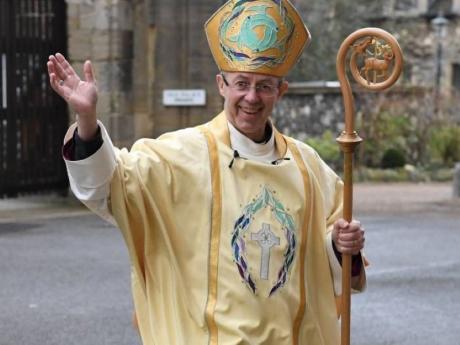Archbishop of Canterbury to participate in forum on slavery during visit to Jamaica
Archbishop of Canterbury Justin Welby, the ceremonial head of the global Anglican Church, is to visit Jamaica next week as part of the 200th anniversary celebrations of the establishment of the Diocese of Jamaica and the Cayman Islands.
Welby's visit from July 18-21, will culminate with a celebratory service on July 21 at the National Arena at which he will preach.
One of the highlights of the visit by Welby and his wife Caroline, will be an online forum on slavery and reparations scheduled for July 20.
Welby, historians and reparations advocates professors Verene Shepherd and Patrick Bryan, and retired judge of the International Court of Justice Patrick Robinson are among the presenters.
Welby is also expected to pay courtesy calls on several senior public officials. He was invited by head of the local Anglican Church Arcbishop Howard Gregory.
While the Anglican Church came to Jamaica with the British in the conquest of the 1660s, it was only given local autonomy 200 years ago.
In March, an advisory panel recommended that the Church of England, out of which Anglicanism grew, should create a fund of one billion pounds (US$1.27 billion) to address its historic links to slavery. The figure is 10 times the amount the church previously set aside.
The independent oversight group established by the church said a 100-million-pound fund announced last year was insufficient compared to the wealth of the church and “the moral sin and crime of African chattel enslavement.”
The Church Commissioners, the church's financial arm, said it accepted the group's recommendations, including a target of one billion pounds “and above” for a pool of money known as the Fund for Healing, Repair and Justice.
Forensic accountants hired by the church have found that the church's huge assets had their roots in Queen Anne's Bounty, a fund established in 1704 to help support impoverished clergy. It invested heavily in Atlantic Slave Trade.
The advisory group also called on the church to apologise “for denying that black Africans are made in the image of God and for seeking to destroy diverse African traditional religious belief systems.”
- The Associated Press contributed to the article
Follow The Gleaner on X and Instagram @JamaicaGleaner and on Facebook @GleanerJamaica. Send us a message on WhatsApp at 1-876-499-0169 or email us at onlinefeedback@gleanerjm.com or editors@gleanerjm.com.

